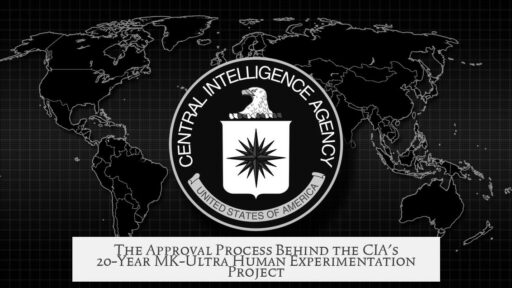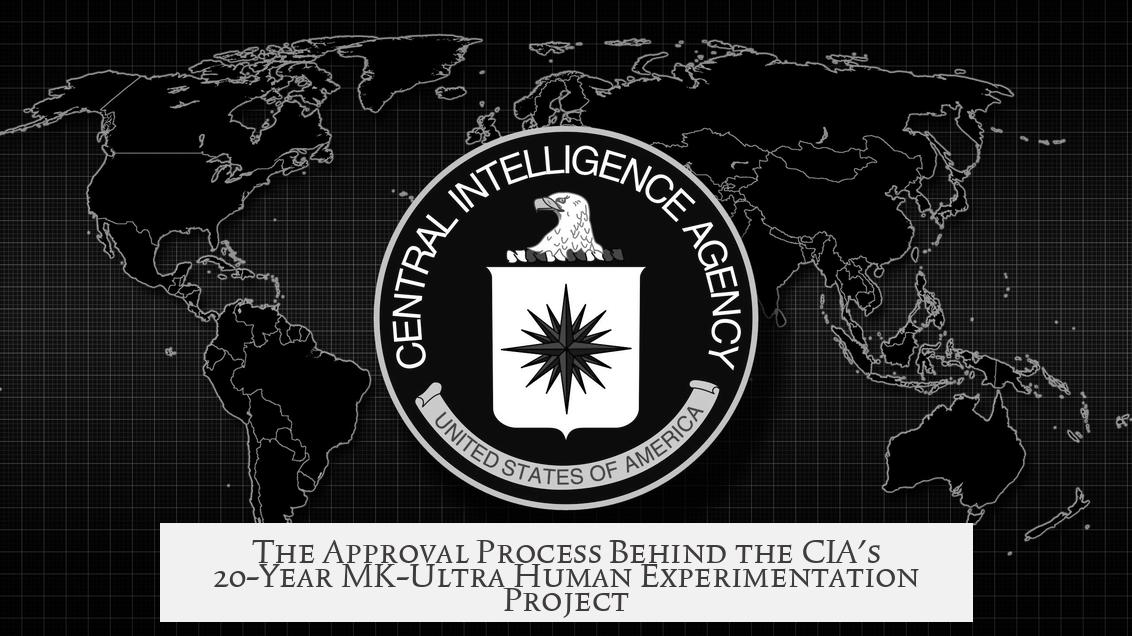The CIA’s MK-Ultra human experimentation project managed to be approved and run for two decades due to a convergence of Cold War fears, prevailing scientific beliefs, strategic funding, and covert operations that minimized scrutiny. It emerged as a response to perceived enemy tactics and fit into the national security mindset that treated the human mind as a potential battleground in psychological warfare.
MK-Ultra began in the early Cold War era, driven by reports from the Korean War of North Koreans allegedly brainwashing American prisoners. The U.S. intelligence community feared this technique could undermine American soldiers’ loyalty and sought to understand and possibly replicate or counter it. This spurred a strategic interest in mind control, psychological torture, and manipulation as potential weapons or defenses, mirroring the era’s pervasive anxiety over ideological and covert warfare.
The project reflected two related motivations:
- To develop protection against enemy brainwashing techniques.
- To investigate whether the U.S. could actively employ similar methods for interrogation, espionage, or control.
These aims aligned with a Cold War worldview where total control over information, technology, and human behavior was considered critical. The historian Paul Edwards described this era’s mentality as “The Closed World,” a belief in technologically enabled dominance extending beyond physical battlefields into psychological realms.
At the time, psychology was heavily influenced by Behaviorism. This theory emphasized the predictability and manipulation of behavior through conditioning, downplaying free will or consciousness. Such scientific thinking legitimized research into controlling or altering human minds, even through extreme experimentation.
From today’s perspective, MK-Ultra involved unethical and scientifically dubious methods, including administering hallucinogens like LSD without consent. However, the project was not viewed by its contemporaries as insane but rather as an extension of Cold War imperatives. It was part of a broader, deeply ingrained conviction that all spaces—including the mind—were arenas for national security competition.
Financially, MK-Ultra’s budget—approximately $80 million over two decades—was modest compared to overall Cold War expenditures. The U.S. spent trillions of dollars on nuclear arms and other military programs. Thus, from the perspective of government agencies, MK-Ultra was a relatively low-cost, experimental gamble, justifiable as a potential high-return investment in national defense.
Moreover, the program’s funding mechanisms were deliberately complex and covert. Often, money flowed through third parties or disguised contracts. Such secrecy shielded MK-Ultra from typical government oversight. Researchers themselves sometimes did not know the true source or purpose of their funds, which limited accountability and public awareness.
Given the Cold War context—which magnified fears of communist subversion, espionage, and technological competition—ethical concerns about MK-Ultra’s methods often went unchallenged or were outweighed by perceived security necessities. The U.S. government prioritized any research that might offer advantages in the psychological or intelligence war.
| Factor | Explanation |
|---|---|
| Cold War Fears | Belief that mind control was a crucial front in fighting communist brainwashing. |
| Scientific Environment | Behaviorism encouraged attempts at behavioral control; psychology was seen as a tool. |
| Strategic Priorities | National security viewed all realms, including psychological, as battlegrounds. |
| Funding Scale | Relatively small compared to total Cold War spending; accepted as experimental. |
| Secrecy in Funding | Complex covert funding concealed true nature and limited oversight. |
| Ethical Oversight | Ethical concerns marginalized by urgency and secrecy surrounding Cold War threats. |
Overall, MK-Ultra was an artifact of its time. It was driven less by irrational or insane impulses and more by a Cold War logic that embraced total control as necessary. Its approval and longevity resulted from the era’s scientific optimism, strategic fears, and institutional mechanisms designed to obscure controversial research.
- MK-Ultra responded to Cold War fears of enemy brainwashing.
- Its goals aligned with prevailing scientific theories endorsing behavioral control.
- The program fit within a Cold War mindset treating all domains as battlefronts.
- Funding was modest but sufficient, obscured through covert channels.
- Ethical issues were overridden by perceived national security imperatives.
How did Cold War fears influence the approval of MK-Ultra?
MK-Ultra arose from worries about North Korean “brain-washing” during the Korean War. The CIA wanted to understand and counter such tactics. This fear made psychological manipulation a national security priority.
Why was MK-Ultra not seen as outright insanity at the time?
The Cold War mindset treated all fields, including psychology, as battlefields. Behaviorism suggested minds could be controlled like machines. This scientific belief made the project seem plausible.
How did funding and secrecy help MK-Ultra last for 20 years?
The project had a modest budget compared to other Cold War expenses, so it drew little attention. Its funding was funneled through secret, complex channels, which limited oversight and accountability.
Was MK-Ultra regarded as scientific or ethical during its operation?
Many saw it as bad science and unethical. But urgency over Cold War threats and belief in behavioral control overshadowed these concerns. It was considered controversial rather than insane.
Did MK-Ultra fit into a larger U.S. security strategy?
Yes. The Cold War demanded control in all domains. Psychological experiments were viewed as part of that effort, extending the tactics of military and technological dominance to the mind.




